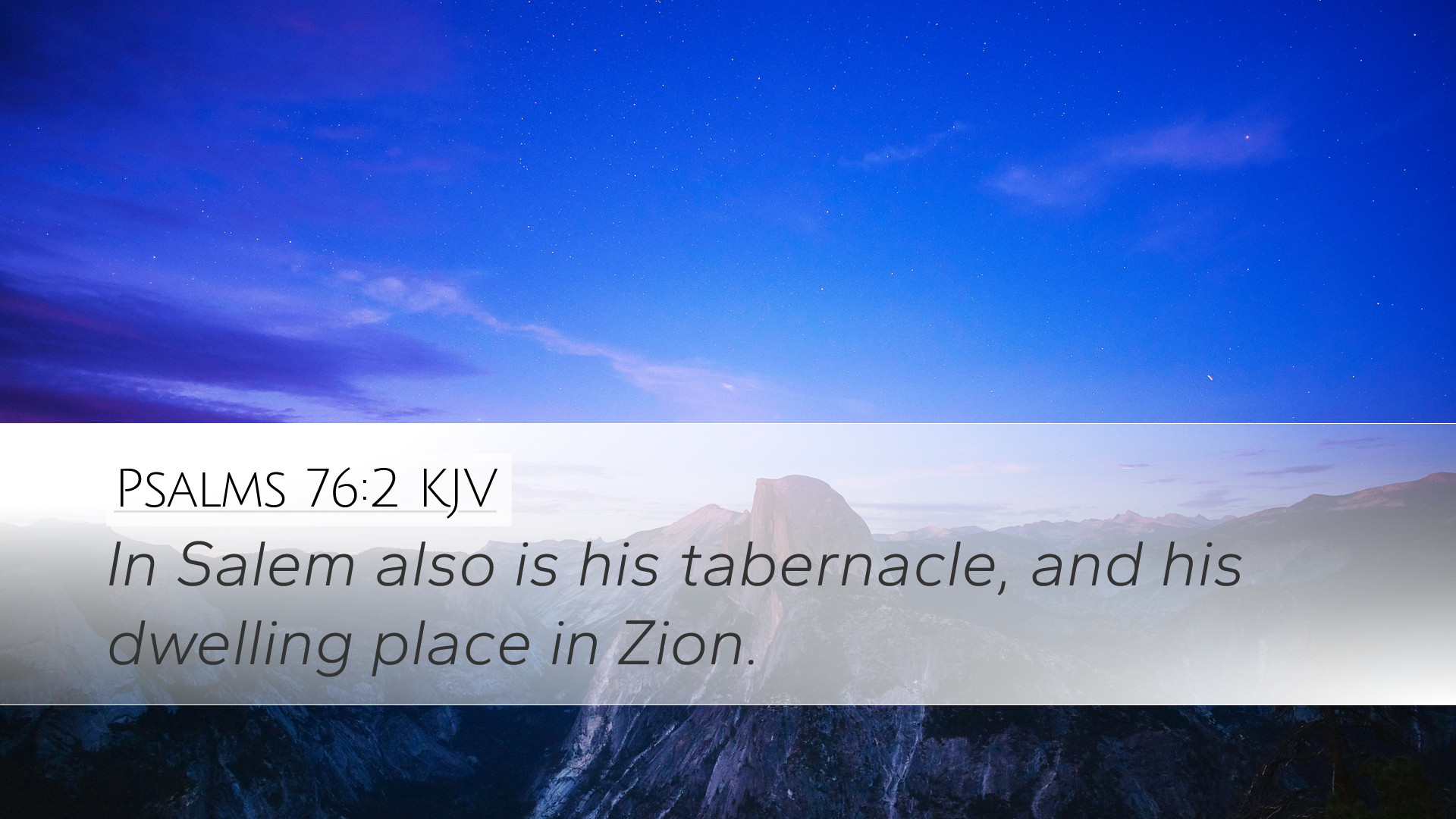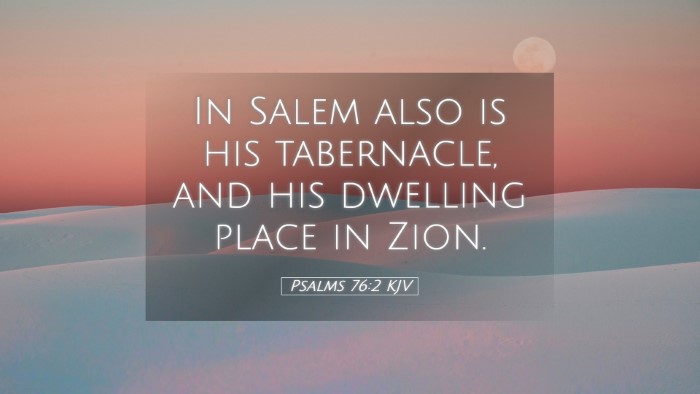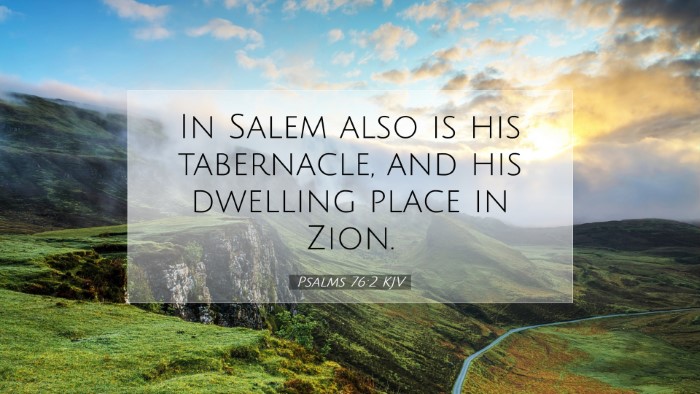Commentary on Psalms 76:2
Psalms 76:2 reads: "His dwelling is in Salem, and his habitation in Zion." This verse encapsulates the presence of God among His people, reflecting both historical and theological significance.
Historical Context
The Psalms, particularly attributed to David, often serve dual purposes: to express personal devotion and convey communal worship. In this verse, the reference to Salem and Zion signifies a deep connection to the historical and geographical landscape of Israel.
Salem, identified by many with the ancient city of Jerusalem, represents peace. Its mention indicates the consummation of God’s presence in a place of divine security and tranquility. Zion, on the other hand, refers explicitly to the hill on which Jerusalem stands and is fervently celebrated as God's chosen dwelling place.
Theological Implications
This verse not only details the location of God’s habitation but also embodies profound theological truths about God's relationship with humanity.
- God's Presence: The notion of God's dwelling signifies that He is not distant but rather intimately involved with His creation.
- Significance of Places: The choice of Salem and Zion illustrates that specific locations can become sacred through God's presence.
- Covenantal Faithfulness: The mention of Zion underscores the faithfulness of God to His covenant people and His promise to them.
Insights from Public Domain Commentaries
Matthew Henry's Commentary
Matthew Henry emphasizes the peace associated with God's dwelling in Salem. He notes that God's presence provides tranquility to His people and engenders a spirit of worship. Henry connects the physical location of Salem with the spiritual peace that believers experience when they are in right relationship with God.
Albert Barnes' Notes
Barnes elucidates that Psalm 76 highlights both the might and majesty of God as the protector of Zion. He suggests that the security found in His presence reveals a promise of safety and refuge to the faithful. According to Barnes, this verse instills a sense of hope, indicating that, regardless of circumstances, God’s dwelling offers assurance to those who seek Him.
Adam Clarke's Commentary
Adam Clarke provides a more expansive insight into the term "Zion," suggesting it not only refers to a physical location but also symbolizes spiritual aspirations for believers. He notes that the reference to God's habitation is significant for the faithful who look to Zion as a source of comfort and hope. Clarke posits that the mixed themes of historical triumphs and spiritual expectations within this verse serve as a motivational force for devotion among God’s people.
Application for Today
Understanding Psalms 76:2 encourages pastors and theologians alike to draw applications for contemporary faith communities. The themes of God's dwelling and His protective nature offer a foundation for sermons and teachings about security in faith.
- Encouragement to Seek His Presence: Like ancient Israel sought God in Jerusalem, modern believers should actively seek God's presence in their lives.
- Community and Worship: The importance of coming together as a community in worship reflects the collective acknowledgment of God’s presence among His people.
- Spiritual Significance of Locations: Just as physical locations were sacred, pastors can teach about the spiritual significance of the church as a modern-day representation of Zion.
Conclusion
Psalms 76:2 offers a rich theological ground for understanding God’s relationship with His people. The insights from various commentaries serve to deepen our appreciation of God's constant and caring presence amidst various life circumstances. As we delve into this verse, may we be reminded of the peace and refuge that comes from dwelling in His presence.


